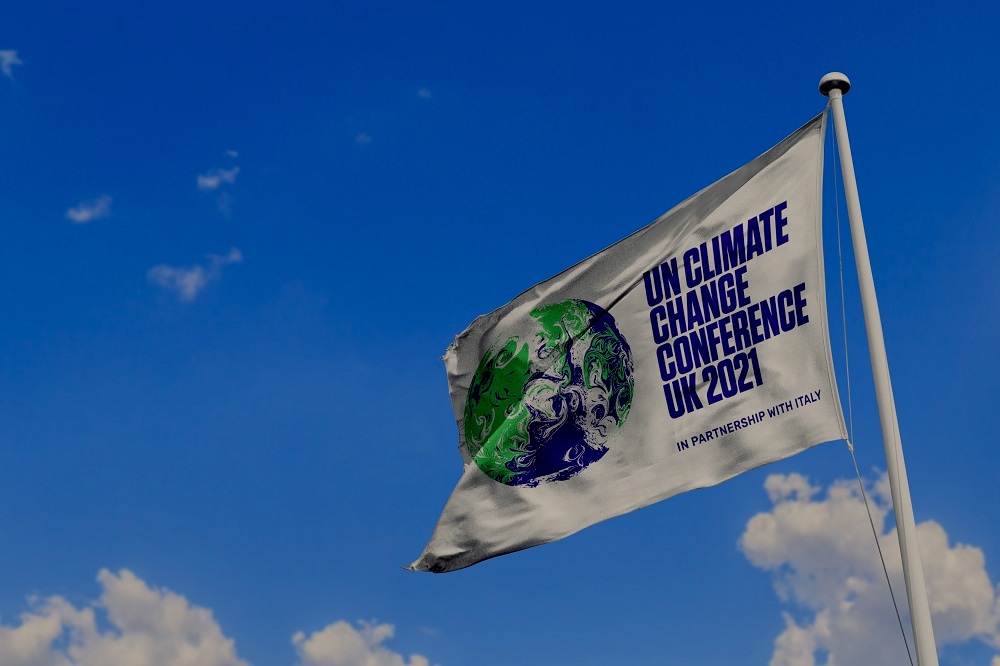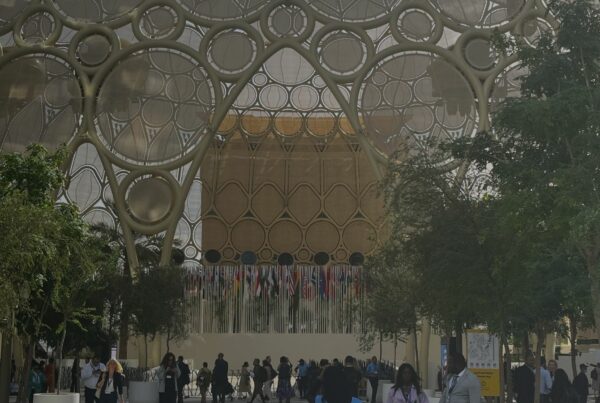Here is the summary of the eigth day of the World Leaders Summit in Glasgow on November 8, 2021:
Weak deal
Initial elements of a COP26 deal emerged on Sunday, and so far it looks weak. It doesn’t include dates by which countries have to enhance climate plans (NDCs) to close the 1.5°C emission gap or any mention of reducing fossil fuels (as per IEA) or fossil-fuel subsidies (which Barbados called for last week). It’s shaping up to be a fight, and oil and gas interests are tooled up. If the fossil-fuel lobby were a country delegation at COP, it would be the largest, with 503 delegates – twice as large as the UK’s.
Deal in context
The final cover deal is important as it’s *the* political signal from Glasgow. What was published yesterday is – in effect – a glossary of terms that could be used in a final deal. What’s angering observers is there’s no mention of phasing out fossil fuels, as suggested by the IEA’s net-zero modelling. That said, there’s a specific adaptation finance section, part of an extensive finance segment. Today’s plenary, when all countries gather in public, should offer more insights.
Saudi’s gambit
The weekend saw representatives from Riyadh try and undermine talks on the COP26 deal, according to Greenpeace International. “Saudi Arabia is making its play. They’re at the chess board, manipulating the pieces in an effort to stop an outcome that keeps 1.5°C within reach… it’s smart, strategic and utterly cynical,” said executive director Jennifer Morgan. Saudi Arabia also moved to strip references to human rights, gender, youth and indigenous peoples from talks on education & empowerment, observers said.
Fight over GHG cuts
The issue that Saudi Arabia and its allies are most resistant to is accelerated GHG cuts in line with 1.5°C. opposing their efforts is UNSG Guterres and four alliances of developing and developed nations accounting for nearly 100 countries – the 55 country-strong Climate Vulnerable Forum, 48 Least Developed Countries, 39 Small Island states and the 27 strong High Ambition Coalition. This photo of Tuvalu’s climate minister’s virtual address to the summit – thigh deep in seawater – underlines fears among island leaders.
**Media briefing: final deal expectations**
15:30 – AOSIS briefing with Milagros De Camps, Deputy Minister of Environment of the Dominican Republic, and Paris Agreement architect Laurence Tubiana. Watch the live stream here or in person in the Press Conference Room: Giant’s Causeway.
Solidarity, heating
The other two themes for a Glasgow deal are solidarity and cheating. Solidarity is, in essence, the set of packages to help developing countries tackle the climate crisis, from the $100 billion to the trillions pledged. Detail on that here. Cheating may be tackled at COP in two forms. First, a UN-led anti-greenwashing drive in 2022 that UN boss Guterres has proposed. Second, shutting down loopholes on offsets and ensuring meaningful climate transparency rules for governments.
Markets
In these negotiations, one marker of progress is the amount of brackets in texts. Typically, the more brackets, the more uncertain an outcome is. In Article 6, reports Simon Evans, 290 [bracketed] sections of text exist. That means there’s lots of loopholes to close and cheating to rule out, with two key points to address this week – more finance and less cheating/greenwashing. As an indicator of how concerned developing countries are about finance at this COP, African countries are digging in on negotiations around an adaptation levy on carbon offsets because they don’t see finance coming from anywhere else.
9% of GDP on adaptation
Many African nations are spending up to 9 percent of their annual GDP on climate adaptation, according to the UN Economic Commission for Africa report. Data based on an unpublished analysis in 2017 suggests Senegal, Ethiopia, Zimbabwe and the Seychelles are among those facing the biggest bills so far. Spending by the 24 countries assessed “ranges between 2%-9% of GDP, which represents more than expenditure on public services such as on healthcare and education,” says UNECA.
Law of the sea
Several nations facing some of the most severe climate impacts aren’t waiting for a deal at COP26. Antigua and Barbados & Tuvalu will ask for opinions from the International Tribunal for the Law of the Sea (ITLOS) on the legal responsibility of countries for carbon emissions causing rising sea levels. Vanuatu too is seeking an opinion from the International Court of Justice on the rights of current and future generations to be protected from climate change. At COP26, Small Island states want to get the Santiago Network on Loss and Damage up and running, a financing target, a UN envoy and a standing agenda item so the issue doesn’t get bumped.
By the numbers:
64%
Climate change could cause GDP to drop 64 percent in the world’s vulnerable countries, warns Christian Aid.
503
More delegates at COP26 are associated with the fossil fuel industry than from any single country, says Global Witness.
8.5 billion – 13.3 billion
That’s the emissions gap between what nations declare their emissions to be versus the greenhouse gases they are sending into the atmosphere, according to the Washington Post.
Obama’s return
Obama’s in Glasgow today, speaking at 2pm in the venue and then later to activists in the city. A preview of what his argument will likely be can be seen in this 29 Oct video he posted on twitter. It focuses on global cooperation, US-China relations, technology and science. “What wasn’t acceptable was just sitting on the sidelines,” he said.
Carbon border tax
Building on the work of the EU, the UK Environment Secretary George Eustice told the BBC countries who don’t pull their weight cutting pollution could face a ‘carbon border tax’ on goods coming into the UK. The EU and the US agreed to remove tariffs on green steel and aluminium last week. The impact on free-riders of efforts to level the playing field shouldn’t be underestimated. It was what drove Turkey to sign up to the Paris Agreement and reportedly what got Australia’s net-zero target over the line.
Medical professionals
For the first time, a strong presence of health experts and health professionals are on the ground at a COP. Forty-five million of them have signed an open letter asking leaders to step up climate action and for the first time there’s a health pavilion at the COP.
Pressers
11:45 – CAN
13:30 – COP26 Presidency
16:30 – Bangladesh
**Looking for insight & analysis: Visit cop26voices.org to hear from Laurence Tubiana, Malango Mughogho, Eddy Perez and more on week 2 expectations.**
UN resolute on greenwashing watchdog
Concern over the credibility of non-state actor commitments is growing. Details of the UNSG’s new commission are starting to emerge, and likely more will come before the week is out. The strong pushback the UN has received from opponents to the plan appears to have only strengthened the UN’s resolve.
COVID takes its toll
Despite big names like Obama arriving in Glasgow, expectations are muted for the US’s overall contribution to COP26, largely due to domestic political tensions. In addition, several delegation members have come down with COVID. While the US might not be affected due to the size of its delegation (165), if smaller teams are infected, it could seriously impact their ability to operate. China, for example, only has 60 delegates here.





